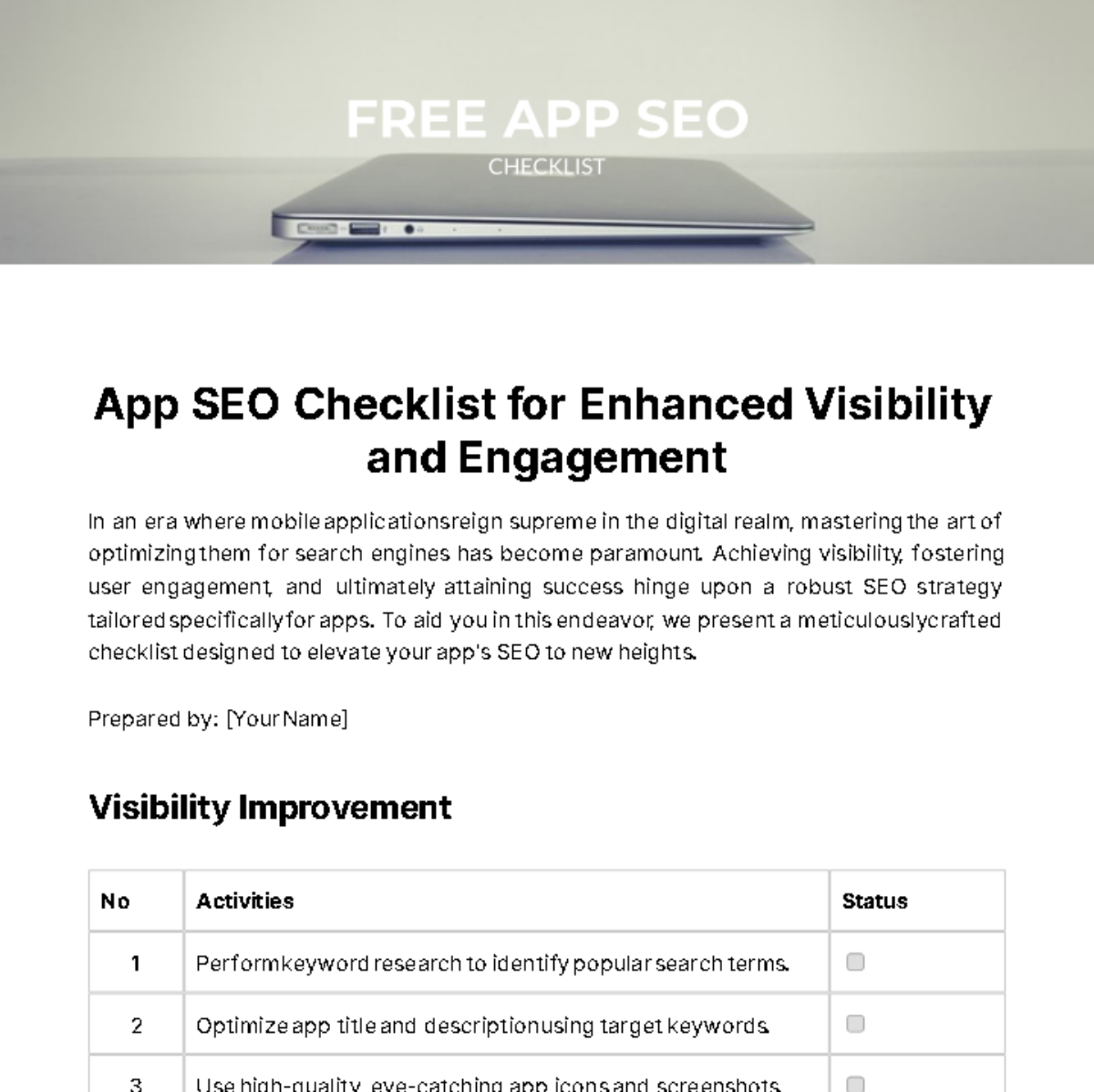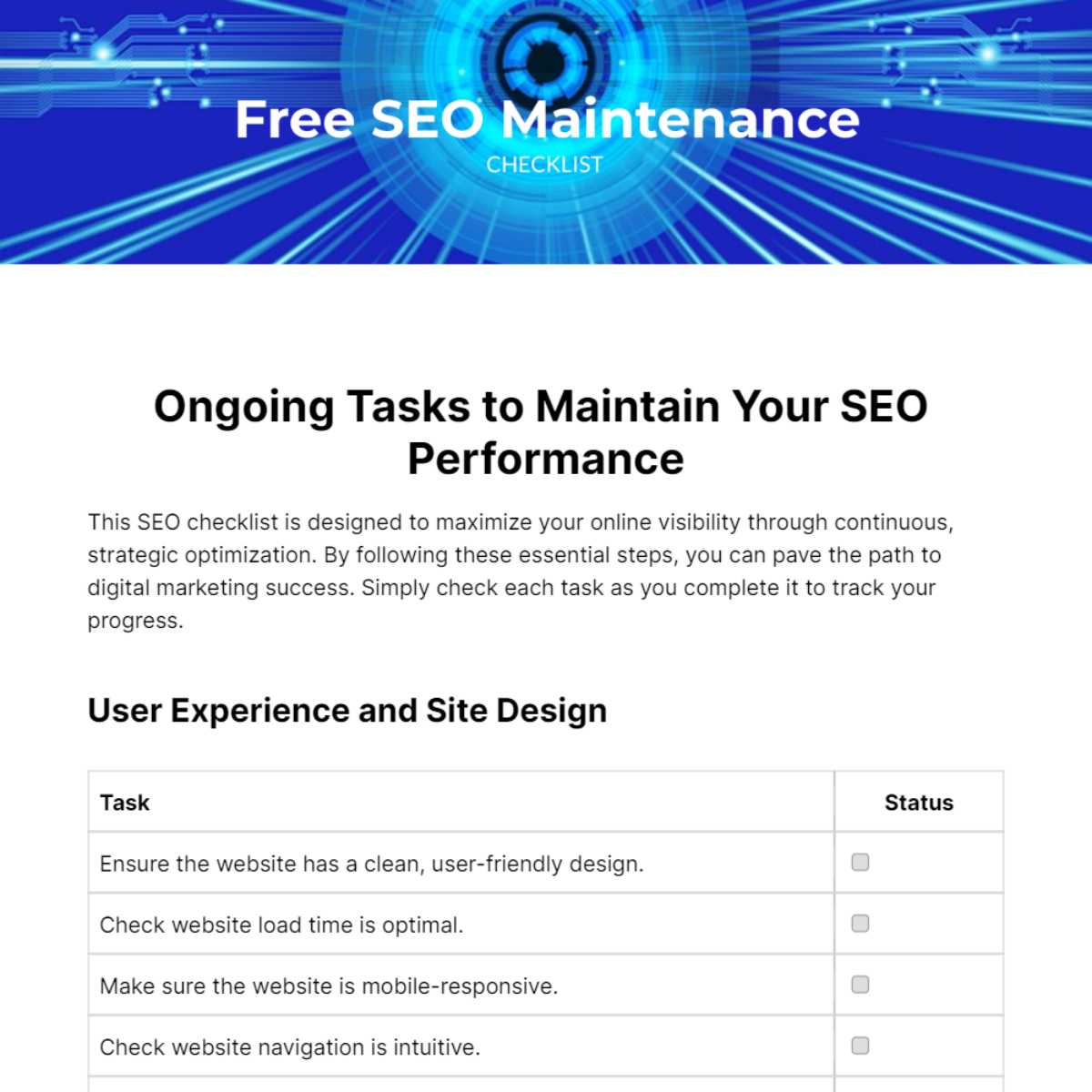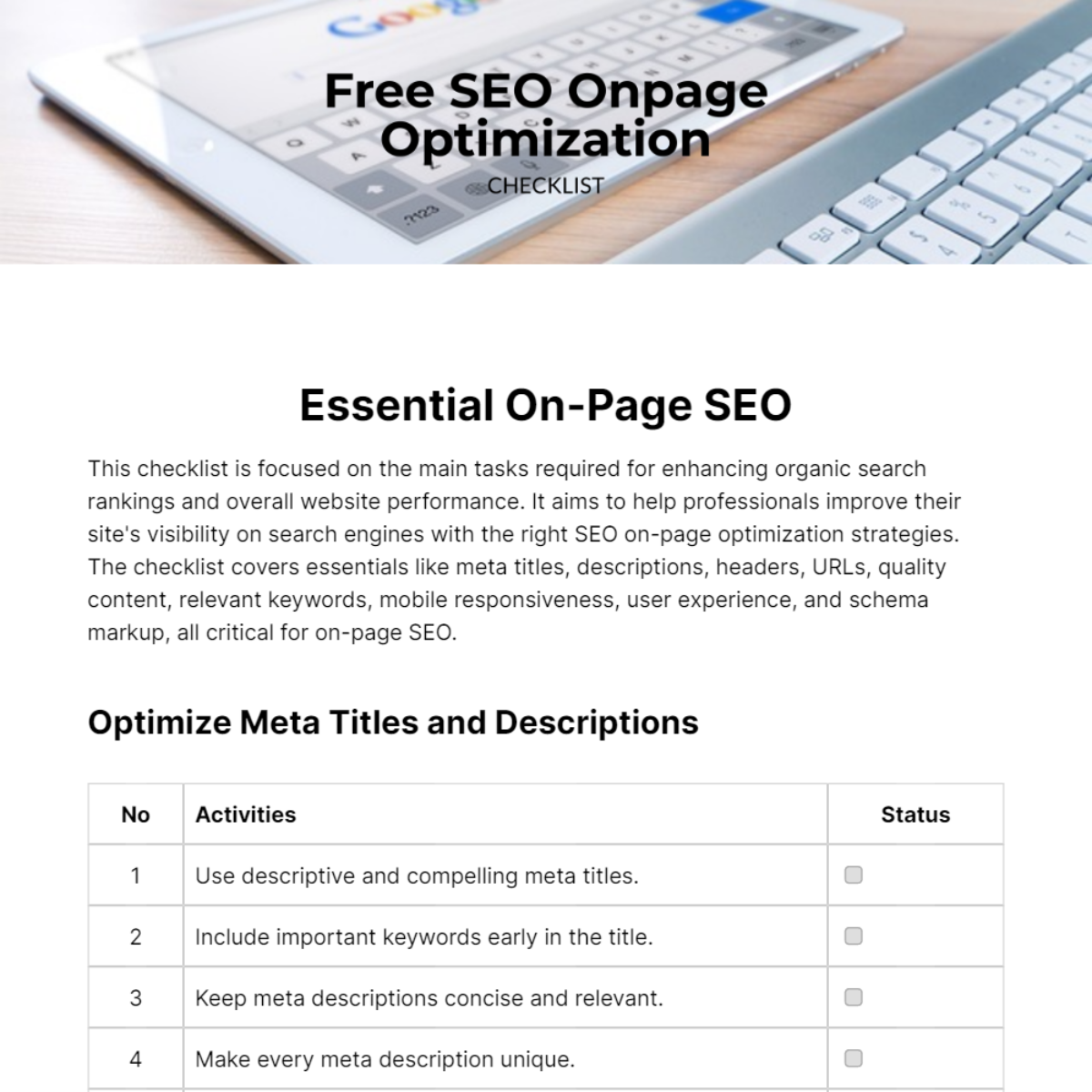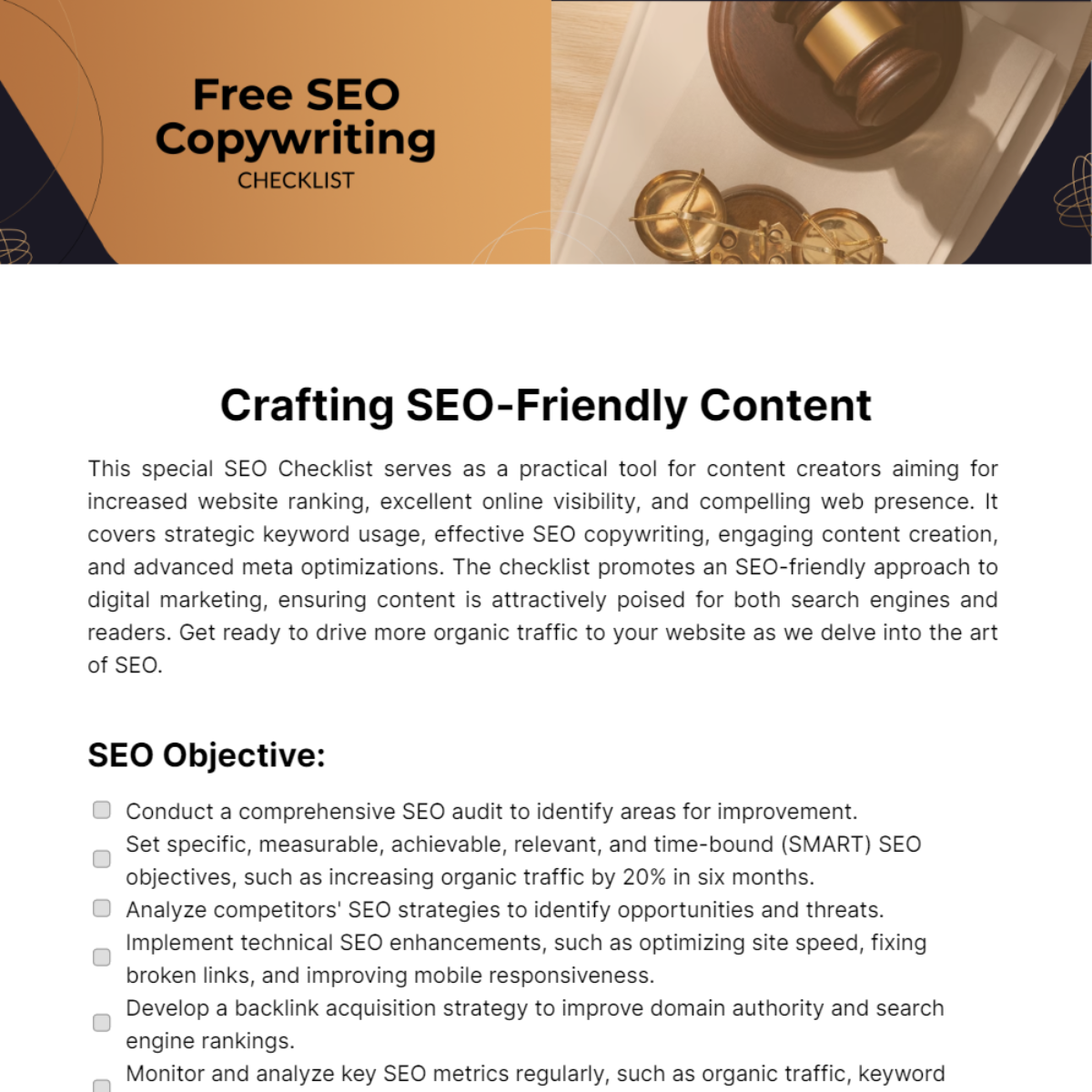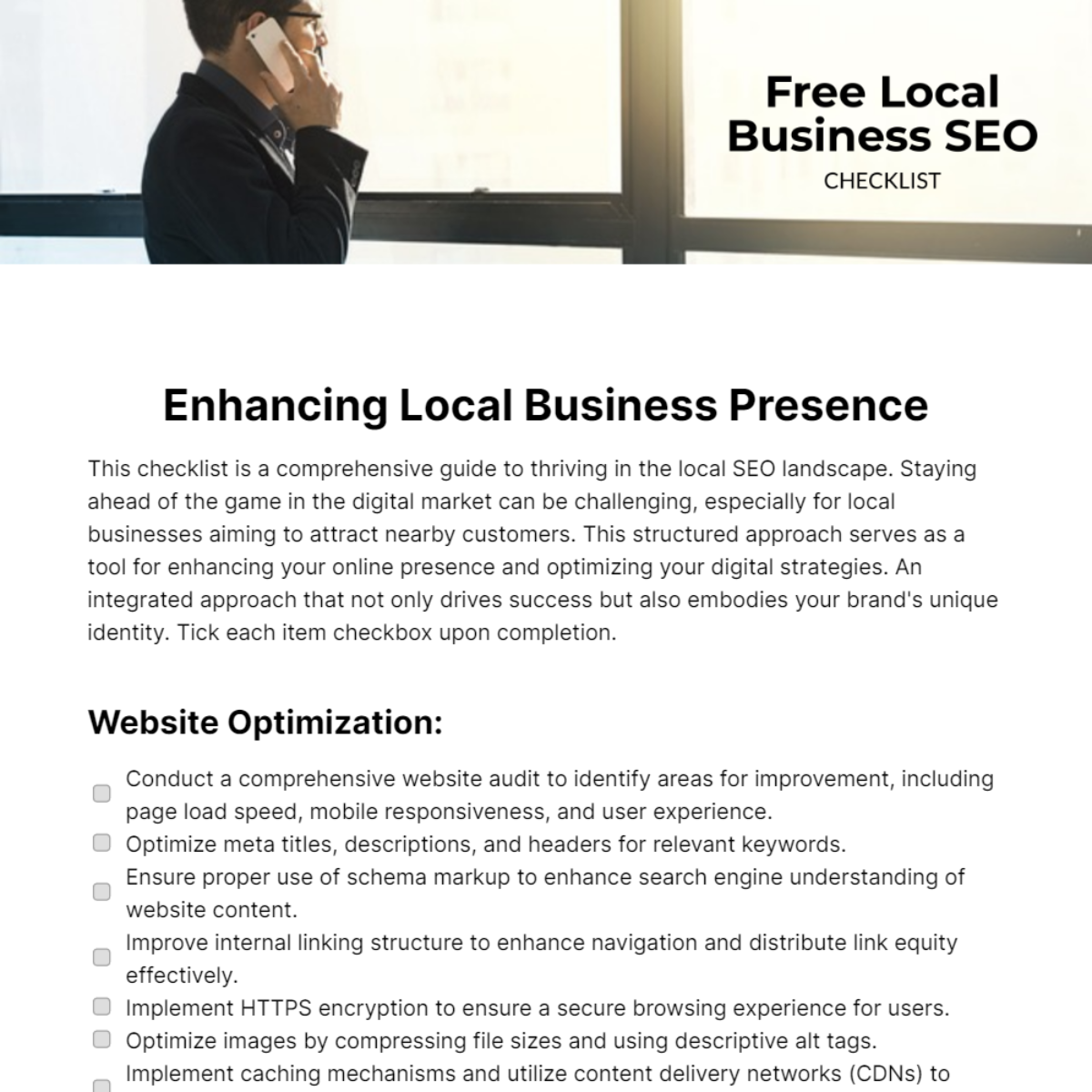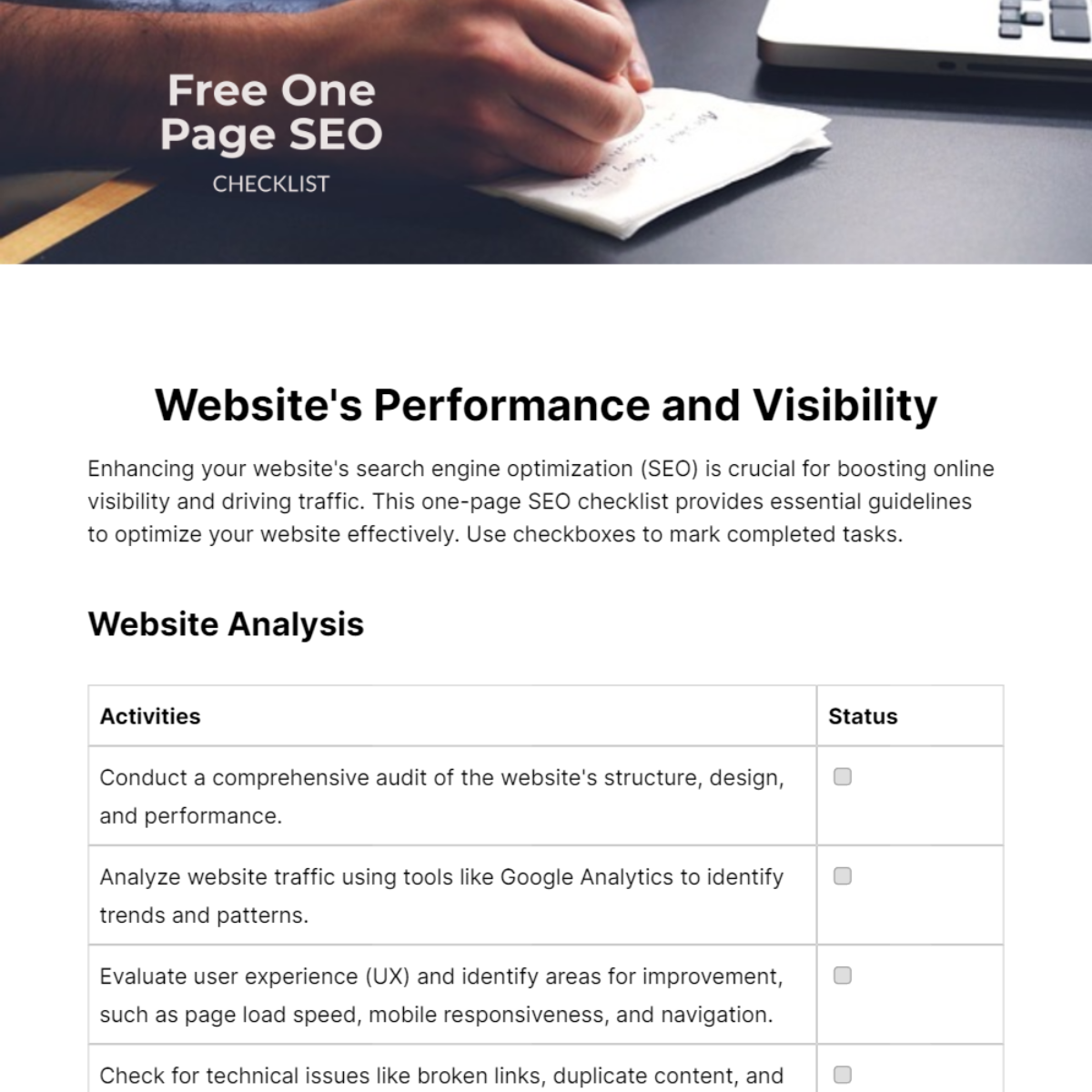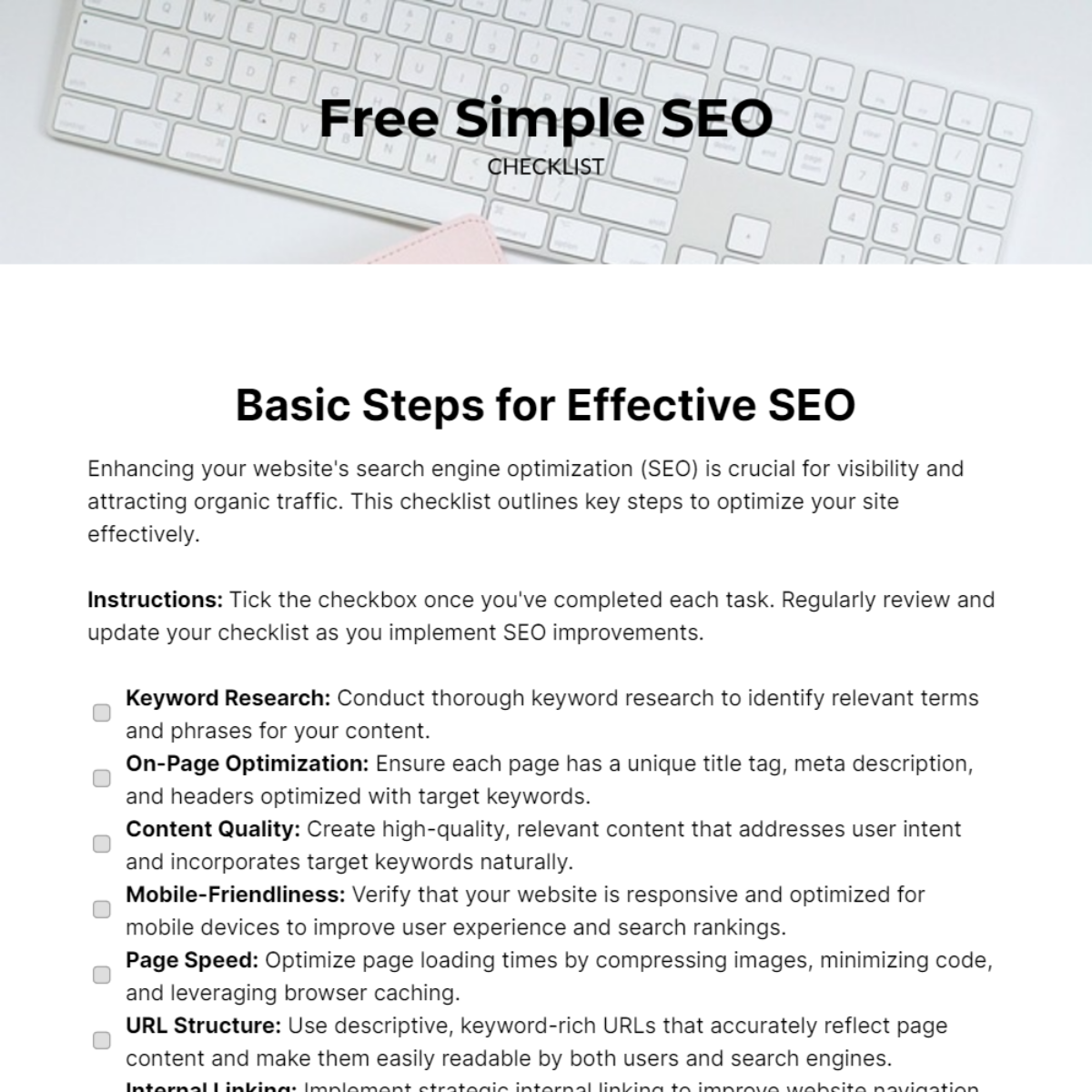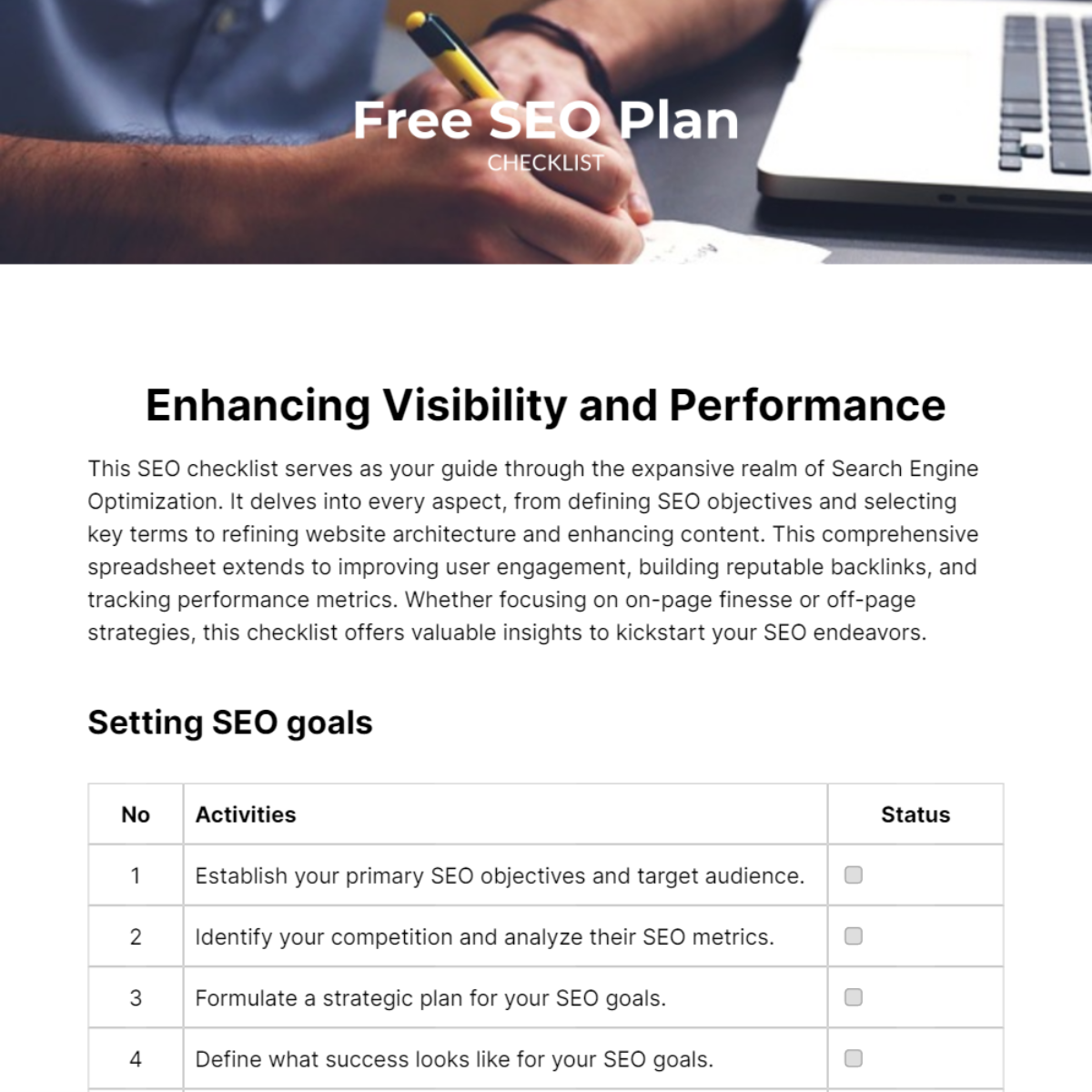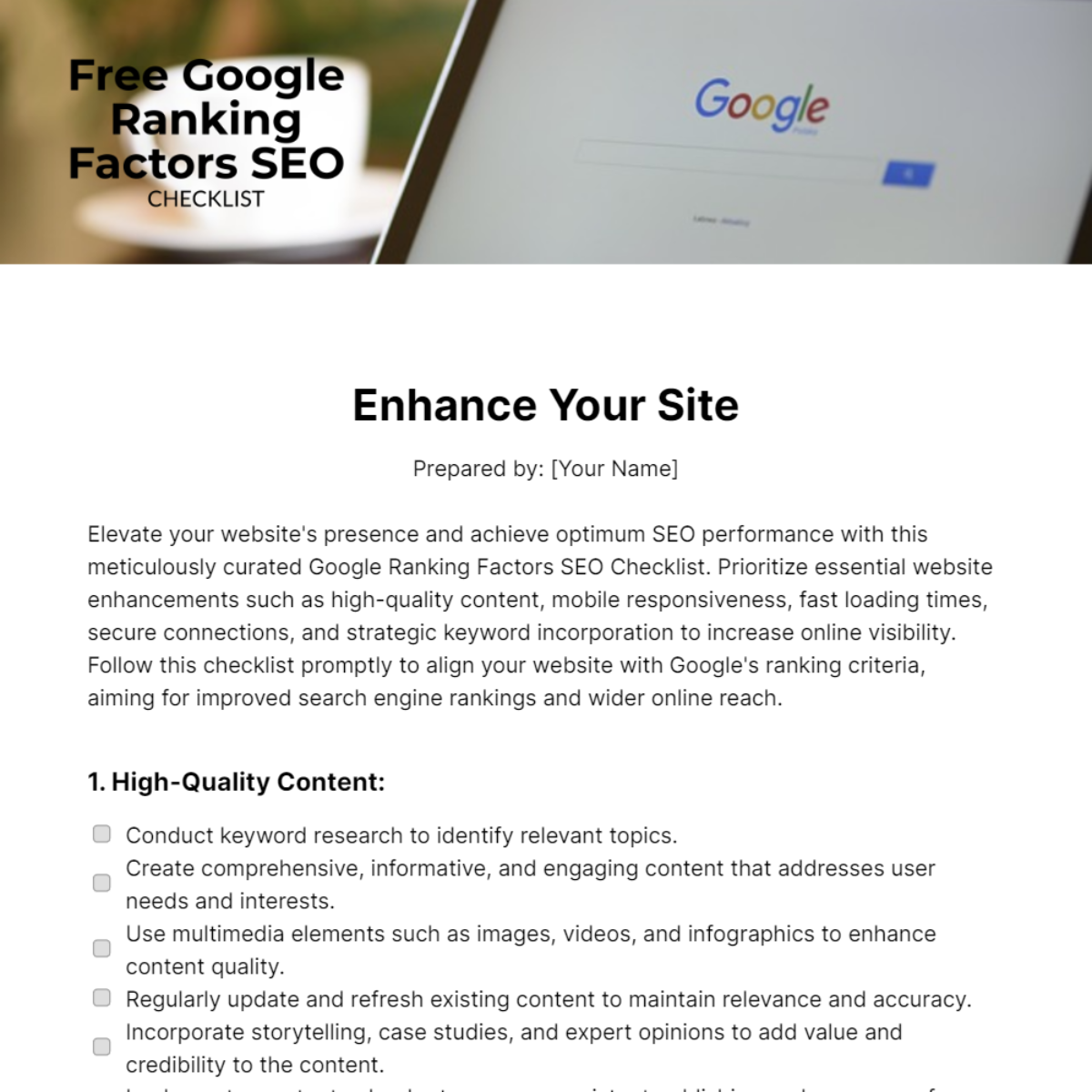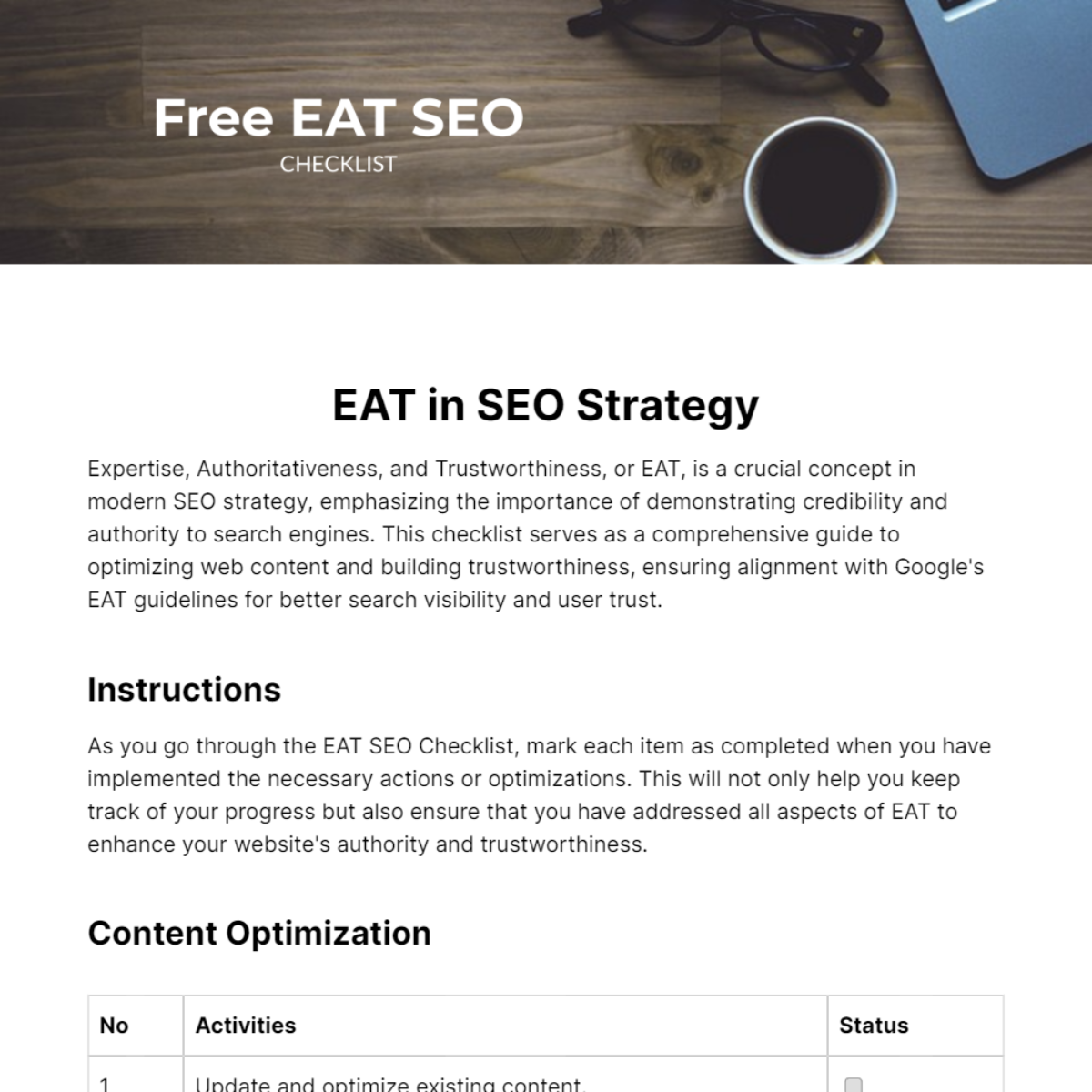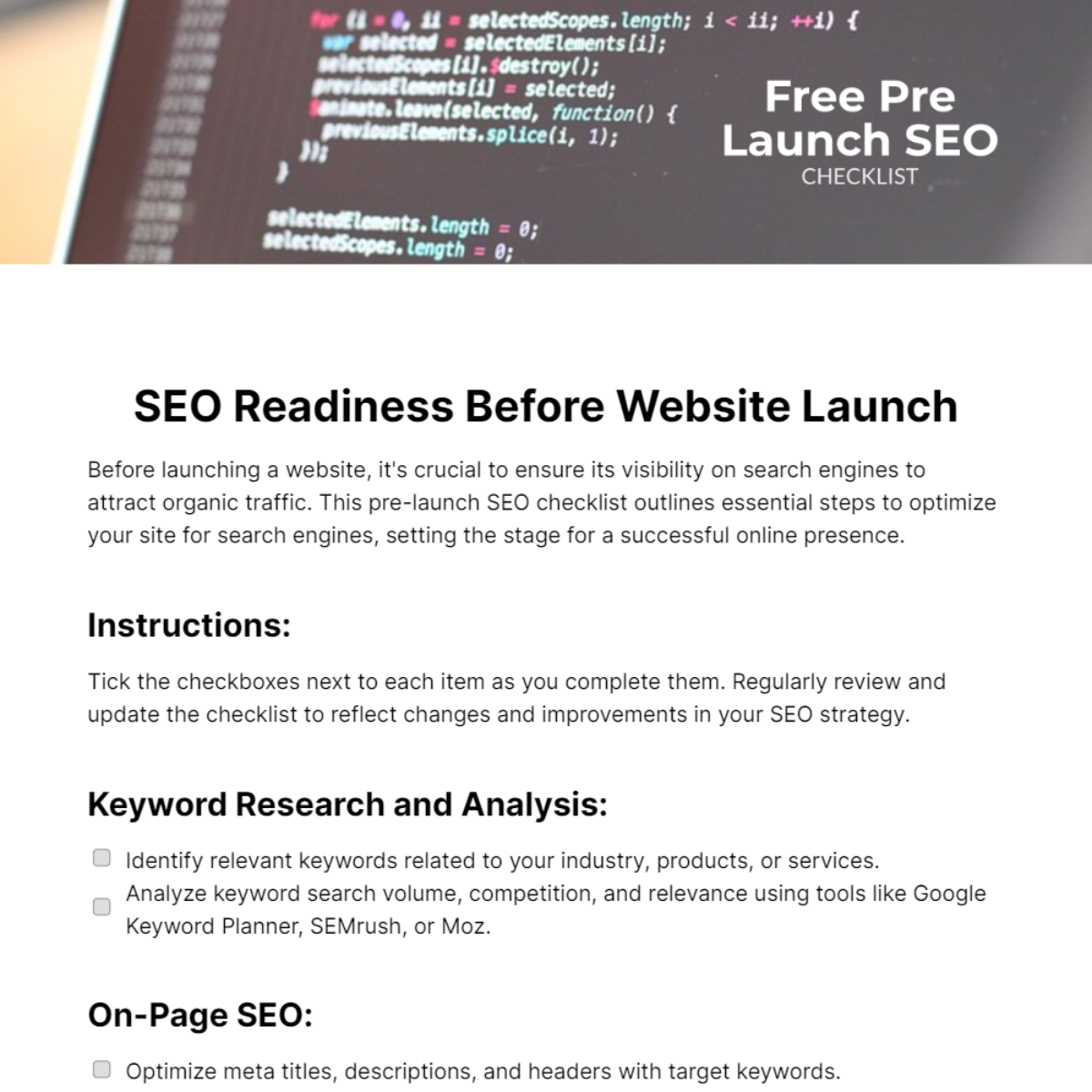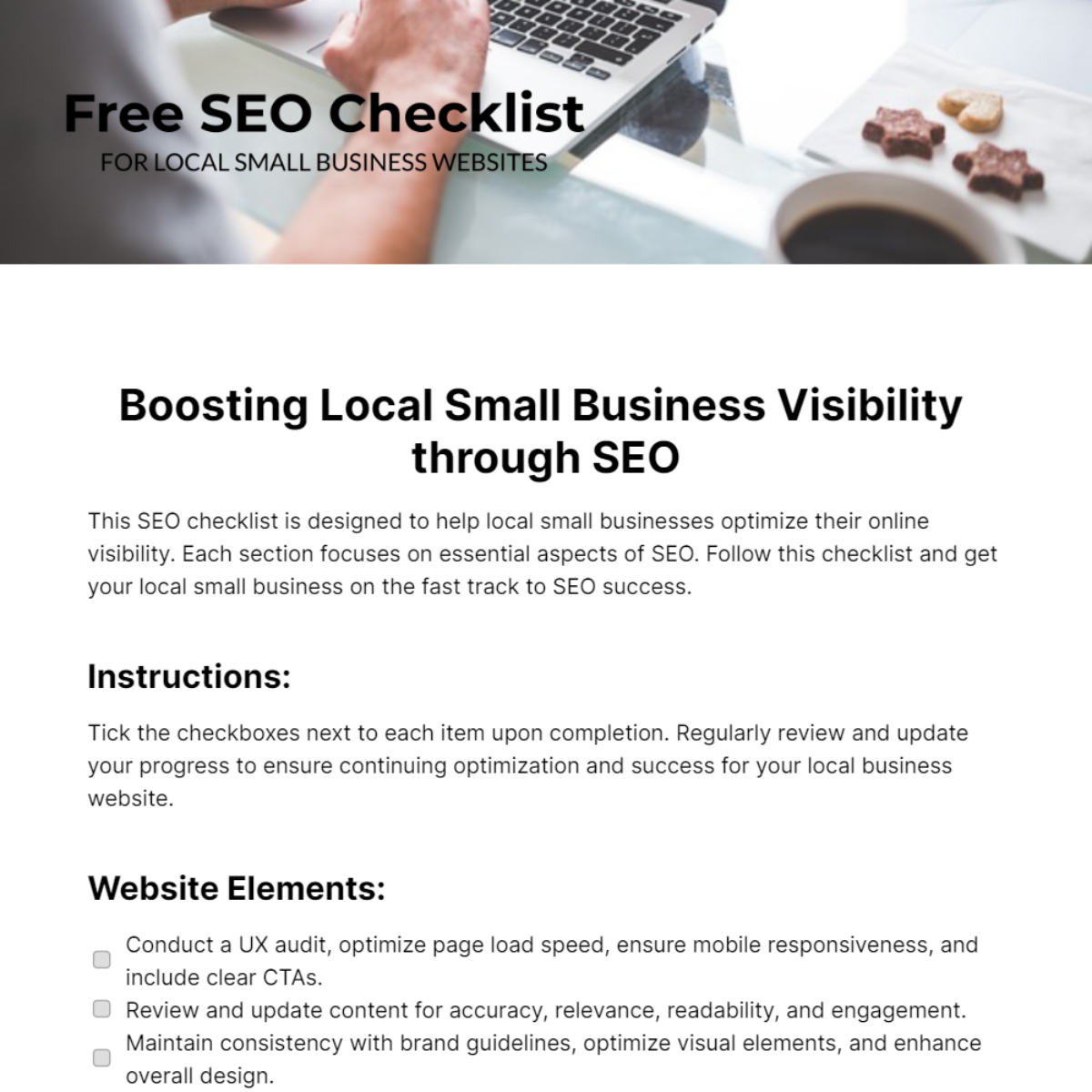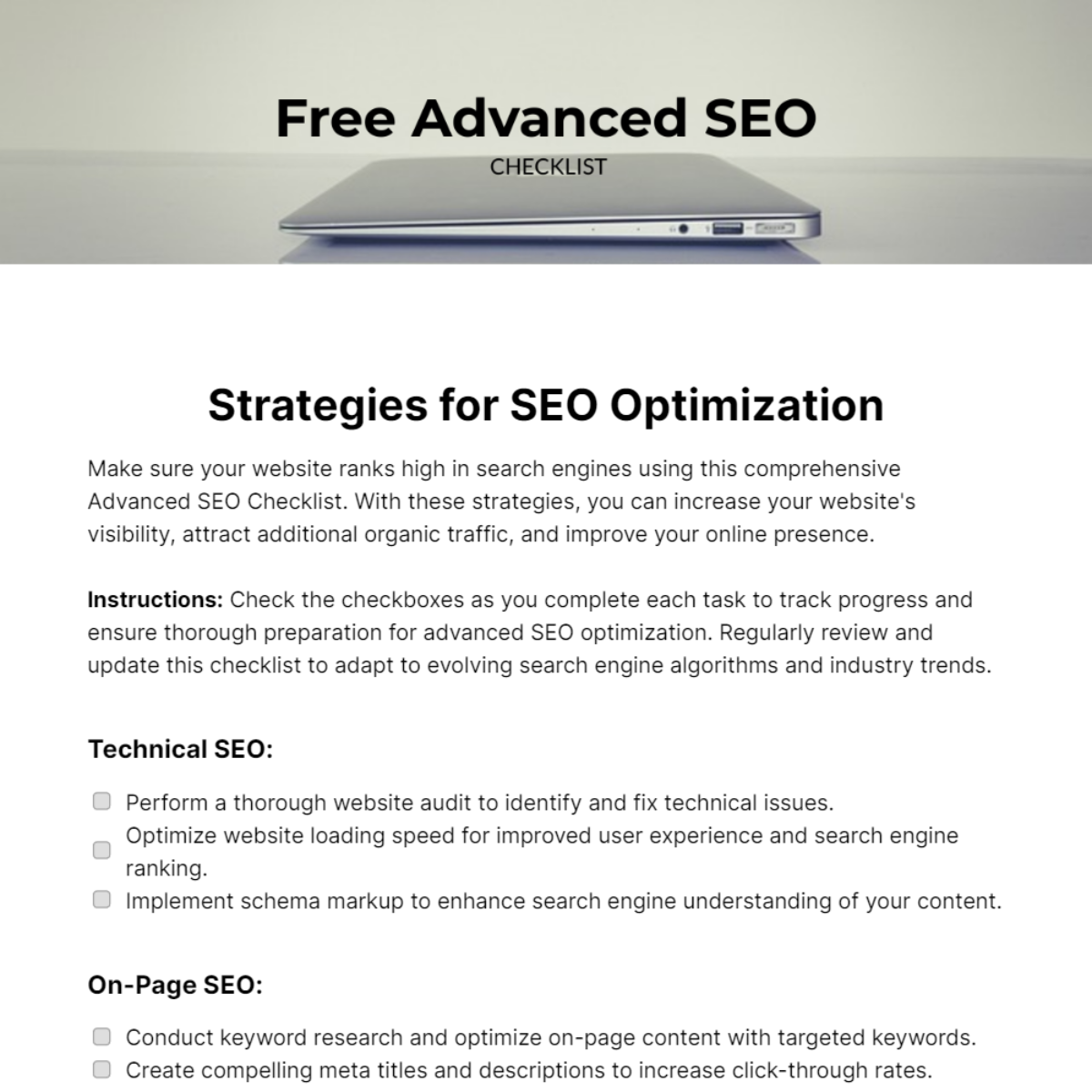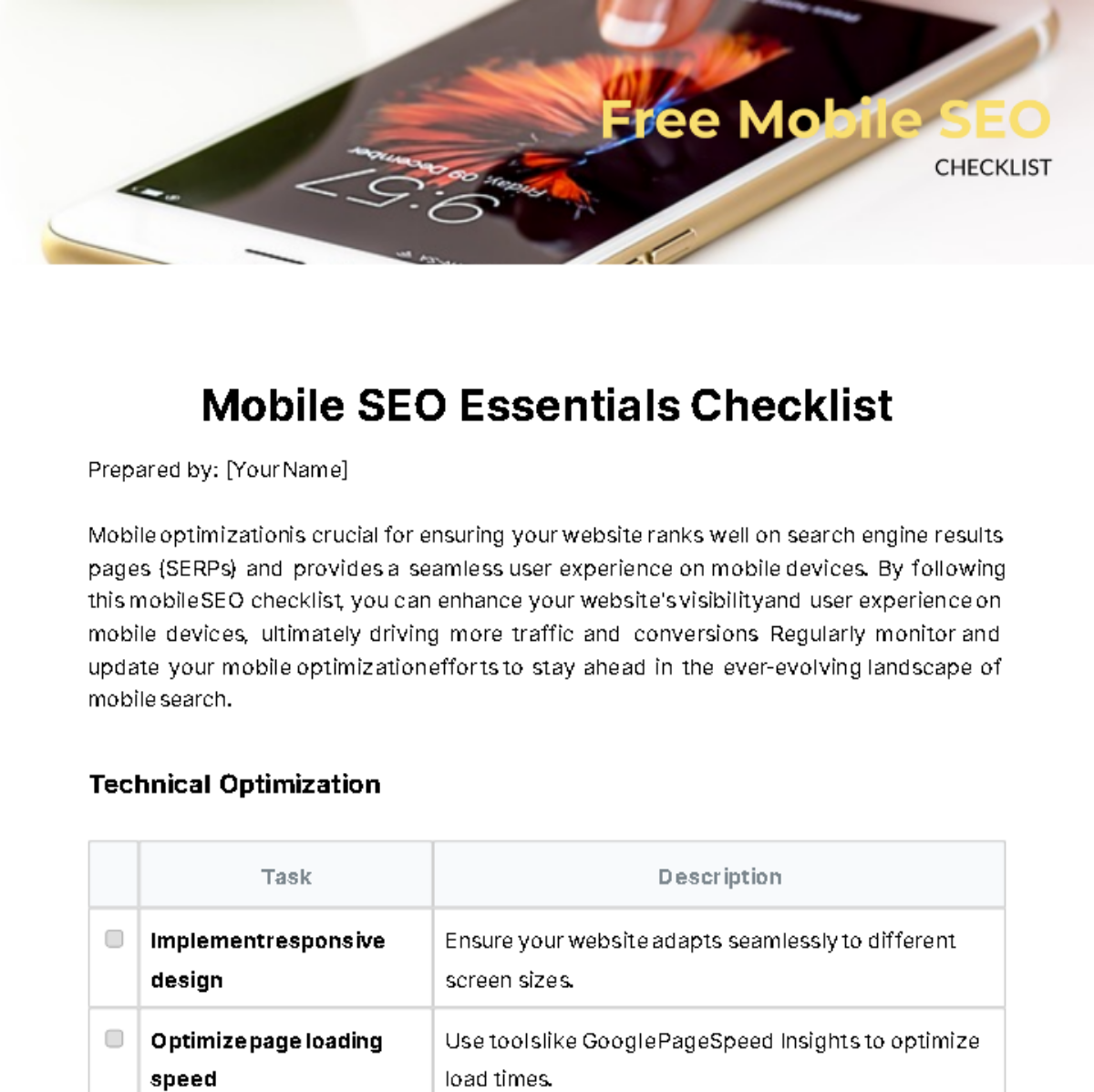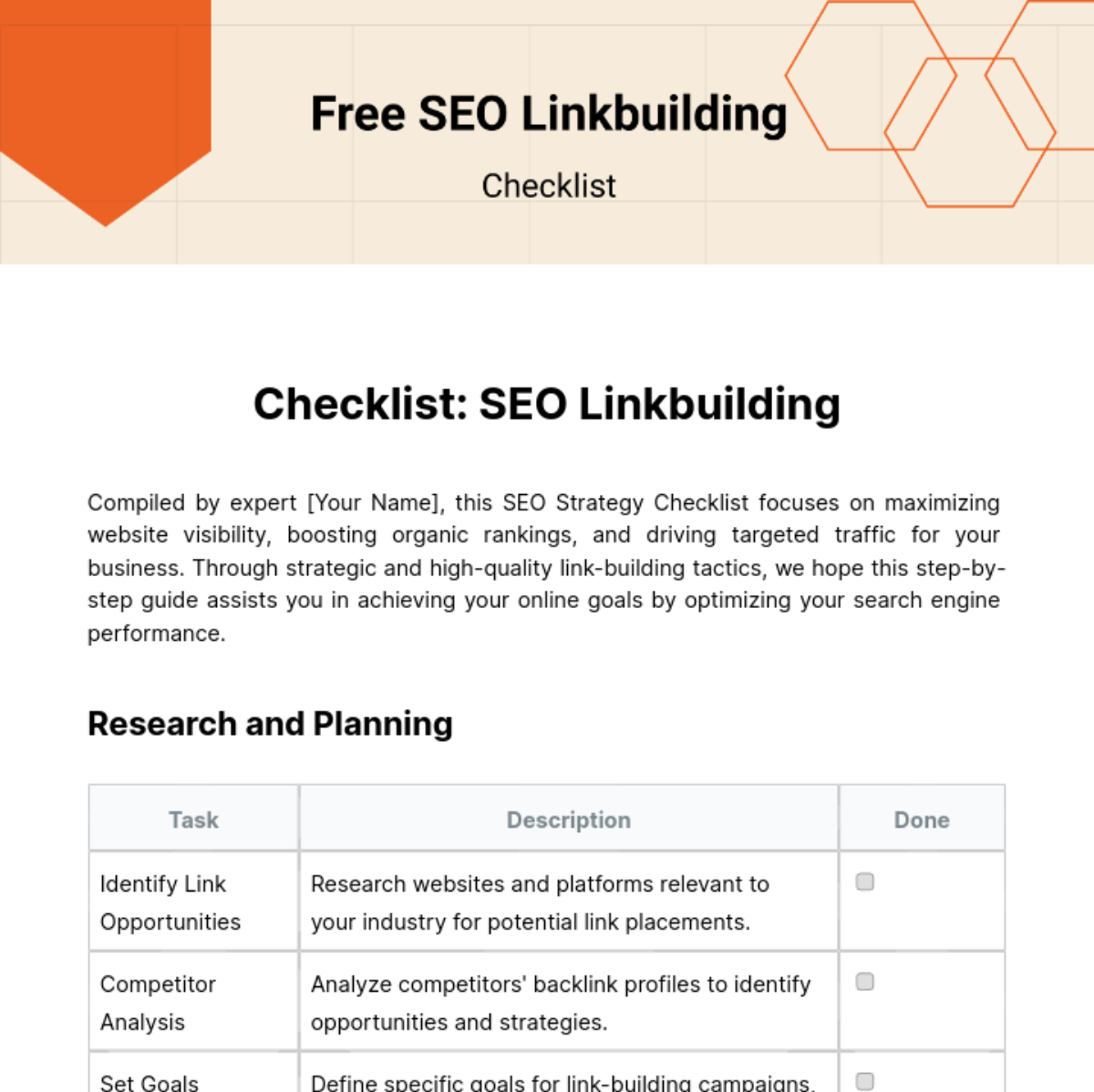Free SEO Checklist For New Websites Template
Essential SEO Checklist for New Websites
Prepared by: [Your Name]
Creating a new website is an exciting venture, but without proper optimization, it may struggle to gain visibility in search engine results. By following this SEO checklist, you'll lay a solid foundation for your new website's success in search engine rankings and drive organic traffic to your content. Regularly review and update your SEO efforts to stay ahead in the ever-evolving digital landscape.
Keyword Research:
Identify relevant keywords for your niche using tools like Google Keyword Planner or SEMrush.
On-Page Optimization:
Title Tags: Ensure each page has a unique and descriptive title tag containing primary keywords.
Meta Descriptions: Write compelling meta descriptions that accurately summarize each page's content.
URL Structure: Use SEO-friendly URLs that include target keywords and are concise and descriptive.
Heading Tags: Utilize H1, H2, and H3 tags to organize content and include keywords where relevant.
Image Optimization: Optimize image filenames and alt tags with relevant keywords.
Content Quality:
Create high-quality, original content that provides value to users.
Use headings, bullet points, and short paragraphs to improve readability.
Aim for comprehensive coverage of topics related to your niche.
Mobile-Friendliness:
Ensure your website is responsive and provides a seamless user experience across all devices.
Test your website's mobile-friendliness using Google's Mobile-Friendly Test tool.
Page Speed Optimization:
Minimize page load times by optimizing images, leveraging browser caching, and reducing server response times.
Use tools like Google PageSpeed Insights to identify and fix speed issues.
Internal Linking:
Create a logical internal linking structure to help users navigate your site and distribute link equity.
Link to relevant internal pages using descriptive anchor text.
External Linking:
Earn backlinks from authoritative websites in your industry through guest blogging, outreach, and content promotion.
Avoid spammy link-building tactics that could harm your site's reputation.
Technical SEO:
Ensure proper indexing of your website by submitting a sitemap to search engines.
Fix crawl errors, broken links, and duplicate content to improve site health.
Analytics and Tracking:
Set up Google Analytics and Google Search Console to monitor website performance and track key metrics.
Use data insights to refine your SEO strategy over time.
